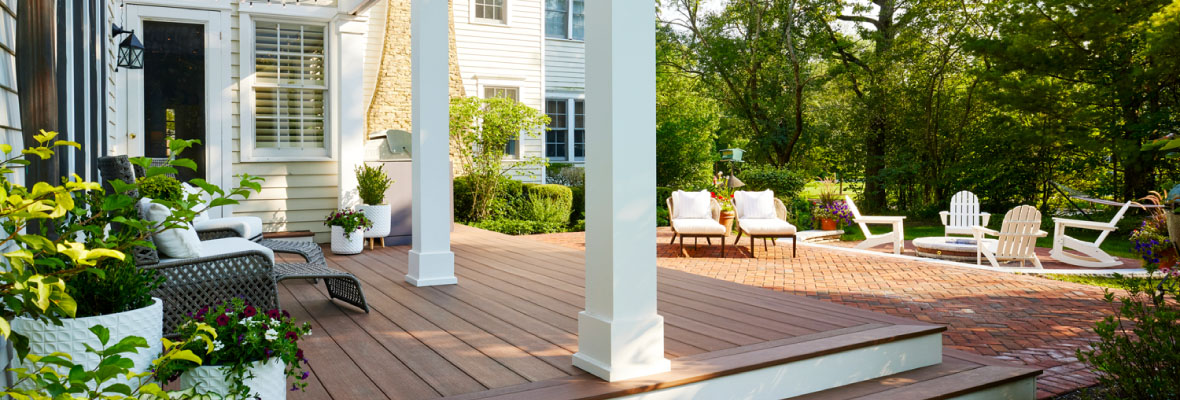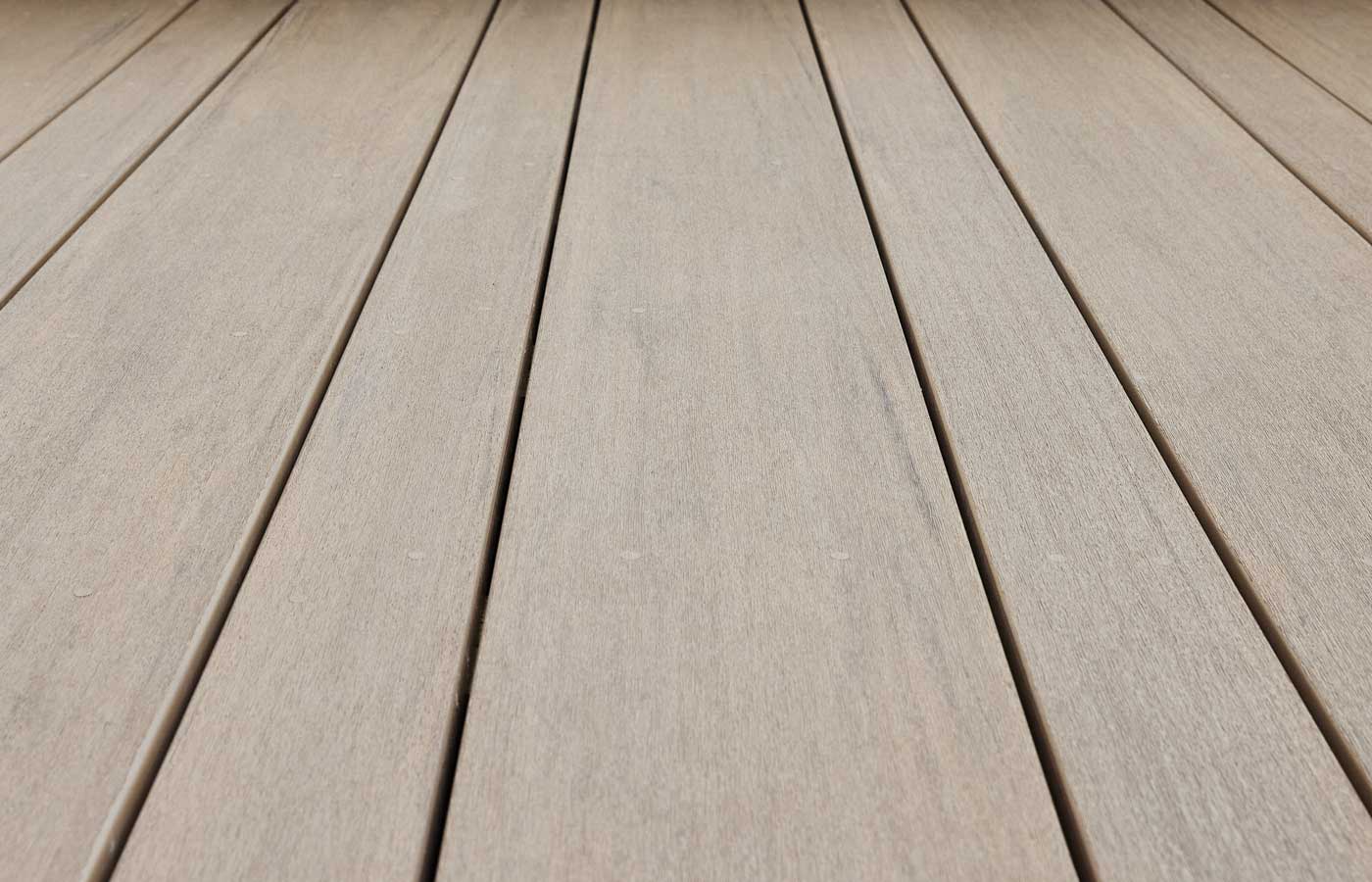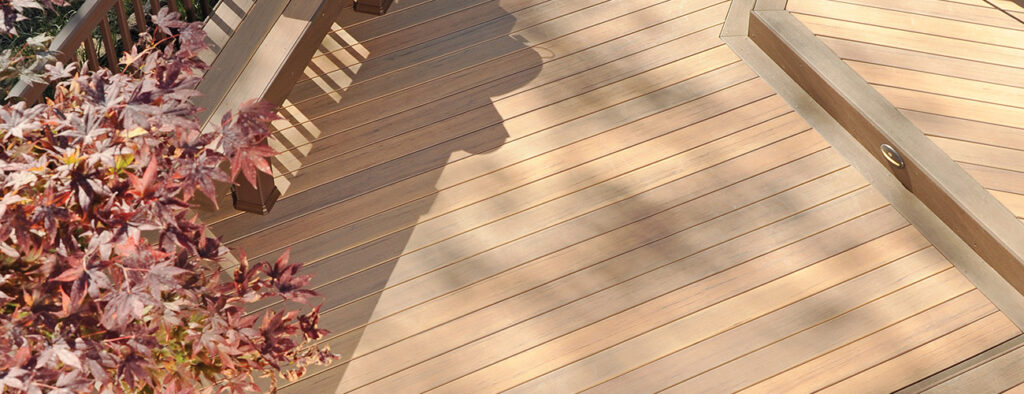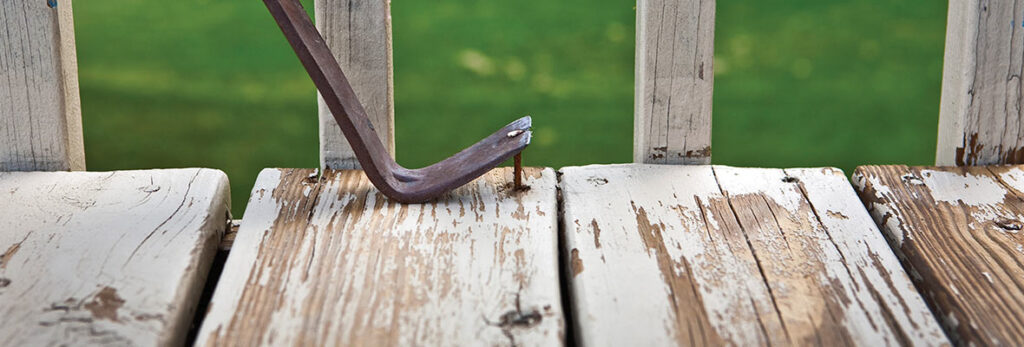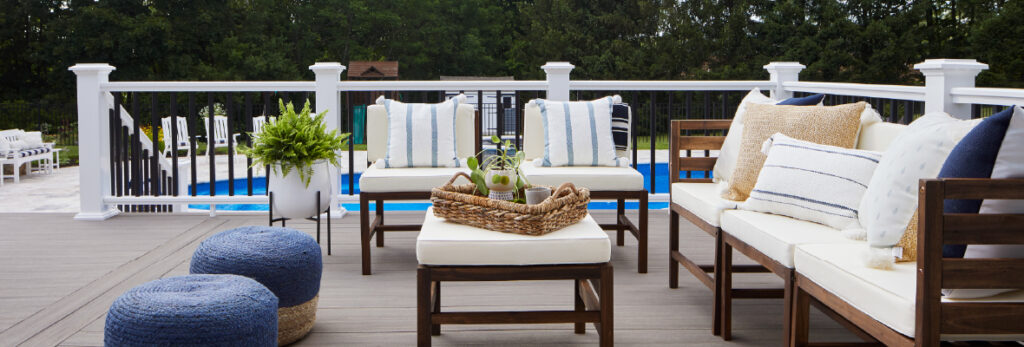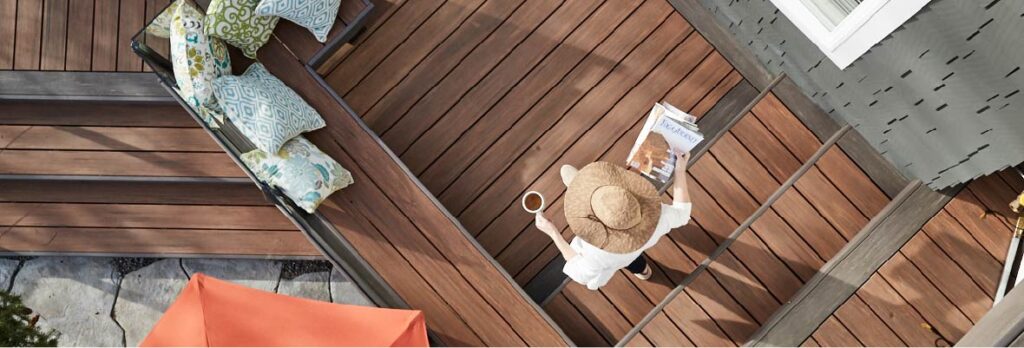A new deck expands your outdoor living space and adds structure and beauty to your yard, but does a deck add value to a home?
Generally, yes — a high-quality deck can increase your property value. It also improves the look and enjoyment of your property for years to come. How much value a deck adds depends on the design, materials used, and quality of your build.
In This Article:
How much value does a deck add?
Nationally, a new deck provides a 44% return on investment (ROI) in added property value. So if you invest $20,000 in a new deck, your property value may increase by $8,800 — 44% of $20,000.
Wood decks are more affordable to build upfront, so they offer the largest benefit with a 50.2% ROI compared to composite’s national average of 39.8%. However, composite comes out on top if you compare the dollar value of your returns. The average wood deck adds $8,559 of value, while composite adds $9,325.
Also consider that composite decking far outlasts wood boards, with transferable warranties ranging from 25 to 50 years. A transferable warranty is ideal if you plan to sell your home since you can transfer the warranty’s ownership to the home buyer.
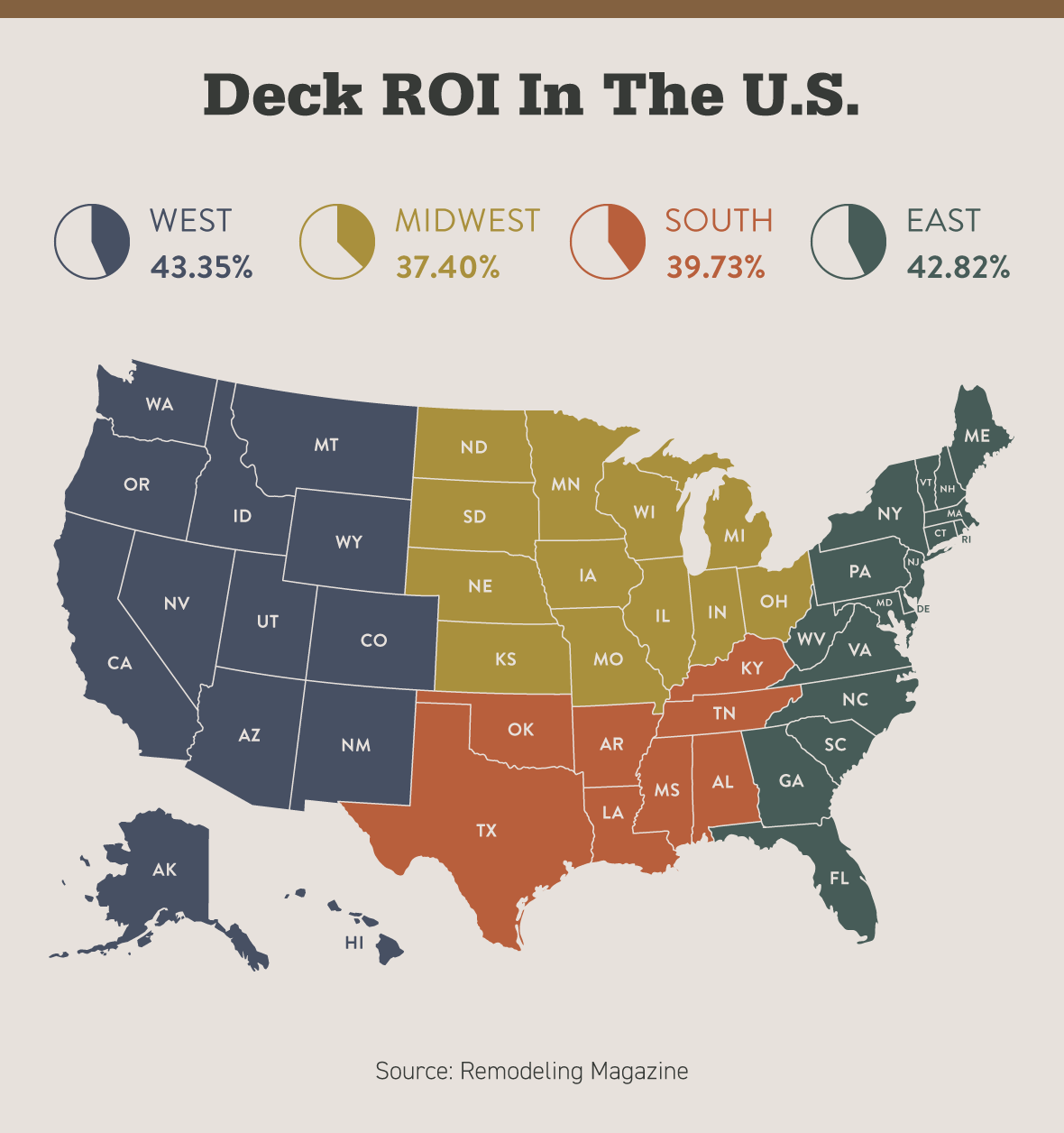
| Location | Average Deck Cost | Return on Investment |
|---|---|---|
| National | $20,240.50 | 44% |
| West | $21,766 | 43.35% |
| Midwest | $21,009 | 37.40% |
| South | $19,796.50 | 39.73% |
| East | $22,279.69 | 42.82% |
Is a deck a good investment?
A deck is a good investment for your outdoor living enjoyment and your home’s value. Decks offer a 44% home value ROI after installation, and historically ROI has been even higher — reaching over 80% as recently as 2018.
The National Association of REALTORS has also surveyed homeowners and found that a deck addition offers one of the largest increases for personal enjoyment, with a Joy score of 9.8/10. They found a new wood deck is the 5th best improvement to entice new buyers after several lawn and landscaping upgrades.
Tips to maximize your deck’s value
We already covered how your material choice affects your deck’s value, but that’s not all to consider. The location of your deck and the deck’s design also play their parts.
Deck material
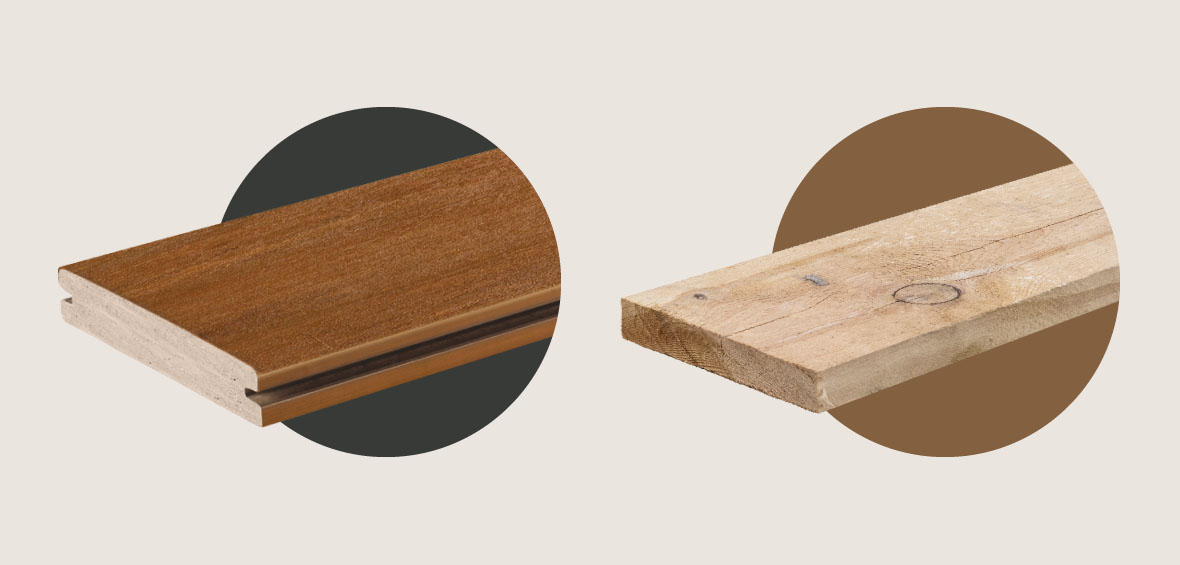
Wood decks offer the largest percentage return on your investment, while composite materials average a higher dollar value return. Composite and PVC materials are also a better long-term value considering their low maintenance costs, and long life spans between 25-50 years.
If you’re preparing to sell your home, wood decks provide the best immediate value. Though TimberTech warranties on composite decking are transferable to new owners, which is a perk for potential buyers.
Location
Where you live is an important factor in your deck material choice and how valuable a deck addition is for your home. Warmer climates in the West have the largest regional deck ROI, averaging 42.82%, compared to the wintry Midwest states, with an average 37.4% ROI. This is partly because warmer climates can enjoy their decks year-round and require less maintenance to protect against extreme weather.
Location also impacts the ROI of your material choice. Middle Atlantic States like New York and New Jersey, which experience harsh winters and coastal weather, have a nearly identical ROI between wood and composite decks at 43.7% and 43.4%, respectively. Winter and salt-weather exposure are extremely damaging to wood decks, so high-performance composite materials are favorable in these climates.
Timing
Whether you’re planning to sell in a few years or want to live in your home for decades also impacts what deck material you should choose and how much value you’ll get from the addition.
Families considering selling their home may enjoy a wood deck for a few years and still benefit from the project’s value before major repairs or renovations are required.
On the other hand, homeowners looking to enjoy a low-maintenance deck for decades before selling will find composite decks are a better value. They also provide a hefty ROI with a higher upfront cost, but homeowners will save more in maintenance costs over 10 years than they would on a cheaper wood addition. They also retain their value better since they don’t rot and decompose like lumber.
Design and decor
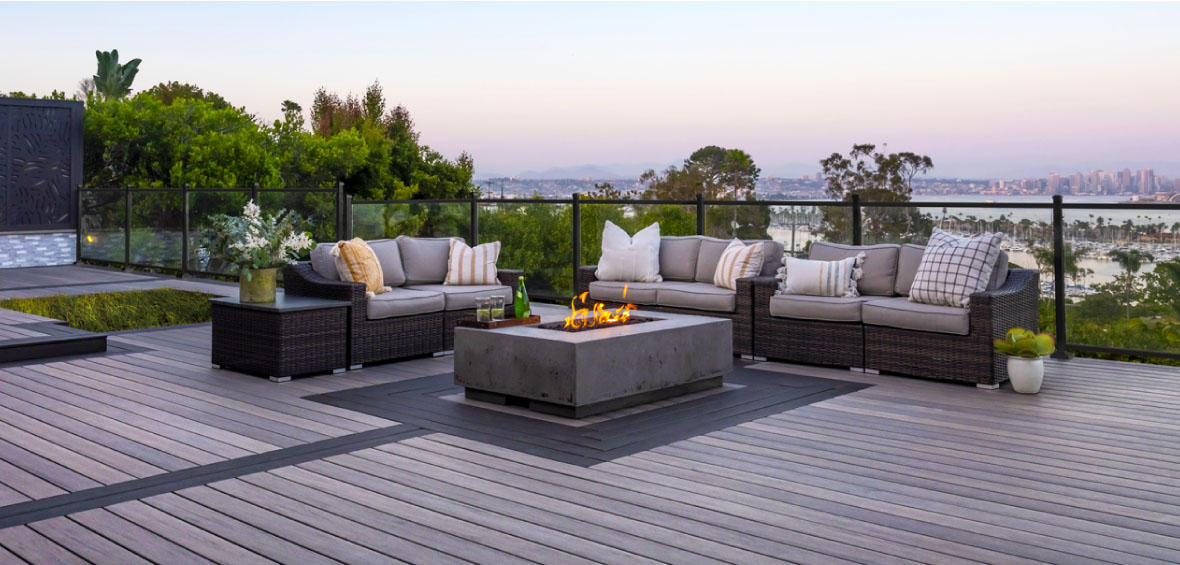
The deck design you build and how it fits into your home’s style also impact your home’s value. A well-built professional structure with deck lights, polished designs like picture framing, and nice landscaping are more valuable than a simple DIY platform deck.
Your deck design should also complement your home. Consider that if you have a small yard and a single-story home, a large multi level deck might be too large for the space. Similarly, a plain gray deck may look underwhelming next to a boldly-colored home with a bright, blooming garden.
Try to keep your deck size proportional to your home. Also consider what purpose your deck serves — dining, entertainment, relaxation — and build to that purpose. Once the deck is built, choose decor that works with your home’s exterior design. Think through your color palette, theme, and environment for inspiration.
FAQ
Does a deck add to square footage?
No, a deck doesn’t contribute to the square footage of your home. Square footage is only counted for livable indoor space, which doesn’t include open-air decks.
Does a deck increase my taxes?
Yes. Because a deck increases your property value, your taxes will also increase.
Property tax rates are based on your tax district’s revenue goal (total levy) divided by the district’s assessed value. While your deck doesn’t affect your tax rate (other than applying to the district’s total assessed value), it does mean the rate is applied to a higher home value, increasing your annual dollar tax amount.
What adds more value — a patio or a deck?
Decks add more value to a home than a backyard patio when we compare 2019 data. Backyard patios provided a 55.2% ROI, compared to wood decks at 75.6% and composite decks at 69.1%. If you already have a back patio, consider building a deck over the concrete to boost your equity.
Many homeowners wonder if a deck adds value to a home. Whether you’re looking to sell your home or increase your living space, you can enjoy a 45% return on deck installation costs.
If you’re interested in a low-hassle, high-performance deck that will improve your home’s value for years, consider TimberTechAdvanced PVC and Composite Decking. Order free samples to see and feel the difference yourself.

